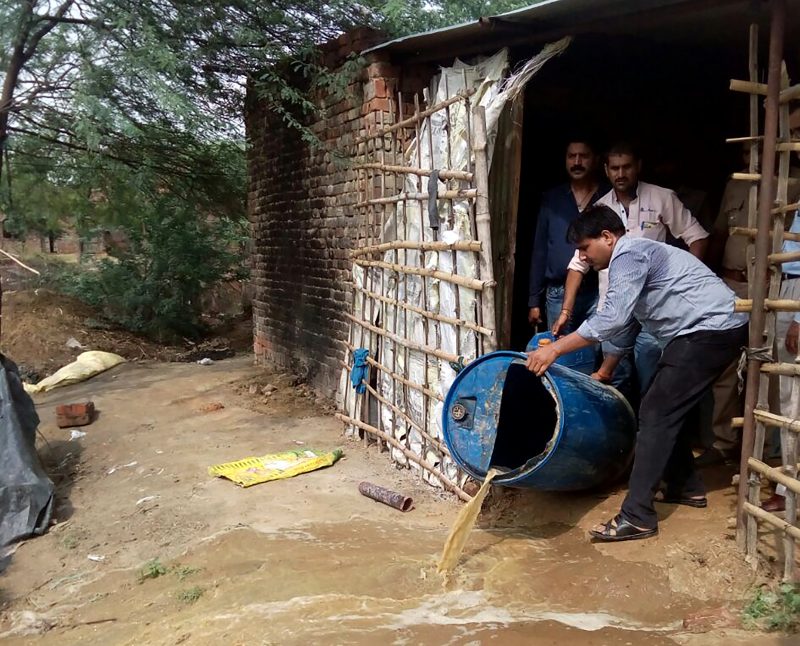At least 99 dead after consuming toxic alcohol in India
Cheap, locally-made liquor is common in parts of rural India, where bad or adulterated batches can have deadly effects for poor consumers (STR)
New Delhi (AFP) – At least 99 people have died and scores have been hospitalised in northern India after drinking toxic alcohol, triggering a crackdown against bootleggers, officials said Monday.
News of the deaths in the states of Uttar Pradesh and Uttarakhand has trickled in over the past three days, with police suspecting the moonshine had been cut with methanol.
Cheap, locally-made liquor is common in parts of rural India and bootleggers often add methanol — a highly toxic form of alcohol sometimes used as an anti-freeze — to their product to increase its strength.
If ingested in large quantities, methanol can cause blindness, liver damage and death.
In one district of Uttar Pradesh 59 people had died after consuming toxic alcohol, police spokesman Shailendra Kumar Sharma told AFP.
In a neighbouring district a senior police officer said nine had died, adding that 66 suspected bootleggers had been arrested and samples of the liquor sent to a laboratory for testing.
Police said at least 31 people died in neighbouring Uttarakhand state and that two had been arrested on suspicion of supplying the liquor.
Newspaper reports said around 3,000 people linked with the illegal trade were arrested across Uttar Pradesh in the aftermath of the tragedy.
Hundreds of poor people die every year in India due to alcohol poisoning, mostly from consuming cheap alcohol.
In 2015, more than 100 people died in a Mumbai slum after drinking illegal moonshine.
Of the estimated 5 billion litres of alcohol drunk every year in India, around 40 percent is illegally produced, according to the International Spirits and Wine Association of India.
Disclaimer: This story is published from a syndicated feed. Siliconeer does not assume any liability for the above story. Validity of the above story is for 7 Days from original date of publishing. Content copyright AFP.


